Filtration of indoor air to remove environmental tobacco smoke contaminants is futile — like trying to filter a lake to control water pollution.1
VENTILATION SYSTEMS DO NOT PROTECT PEOPLE FROM SECONDHAND SMOKE

Fresh smelling air doesn’t mean smoke-free air. Many ventilation systems include scents that mask the smoke smell.

Ventilation, air filtration and the use of designated smoking areas are ineffective in protecting against exposure to tobacco smoke.2

HVAC systems can distribute secondhand smoke throughout a building.3
After four hours in a casino with a “sophisticated” ventilation system, nonsmokers had 4.5 times the level of nicotine in their bodies compared to those not exposed and their level of the carcinogen NNAL increased by 112%.4
3-6X
HIGHER NICOTINE LEVELS
Casino employees in a “well-ventilated” casino had metabolized nicotine levels 3 to 6 times higher than in other smoking workplaces.4

The American Society of Heating, Refrigerating, and Air-Conditioning Engineers determined 100% smoke-free environments are the only way to protect employees and the public from secondhand smoke exposure.2